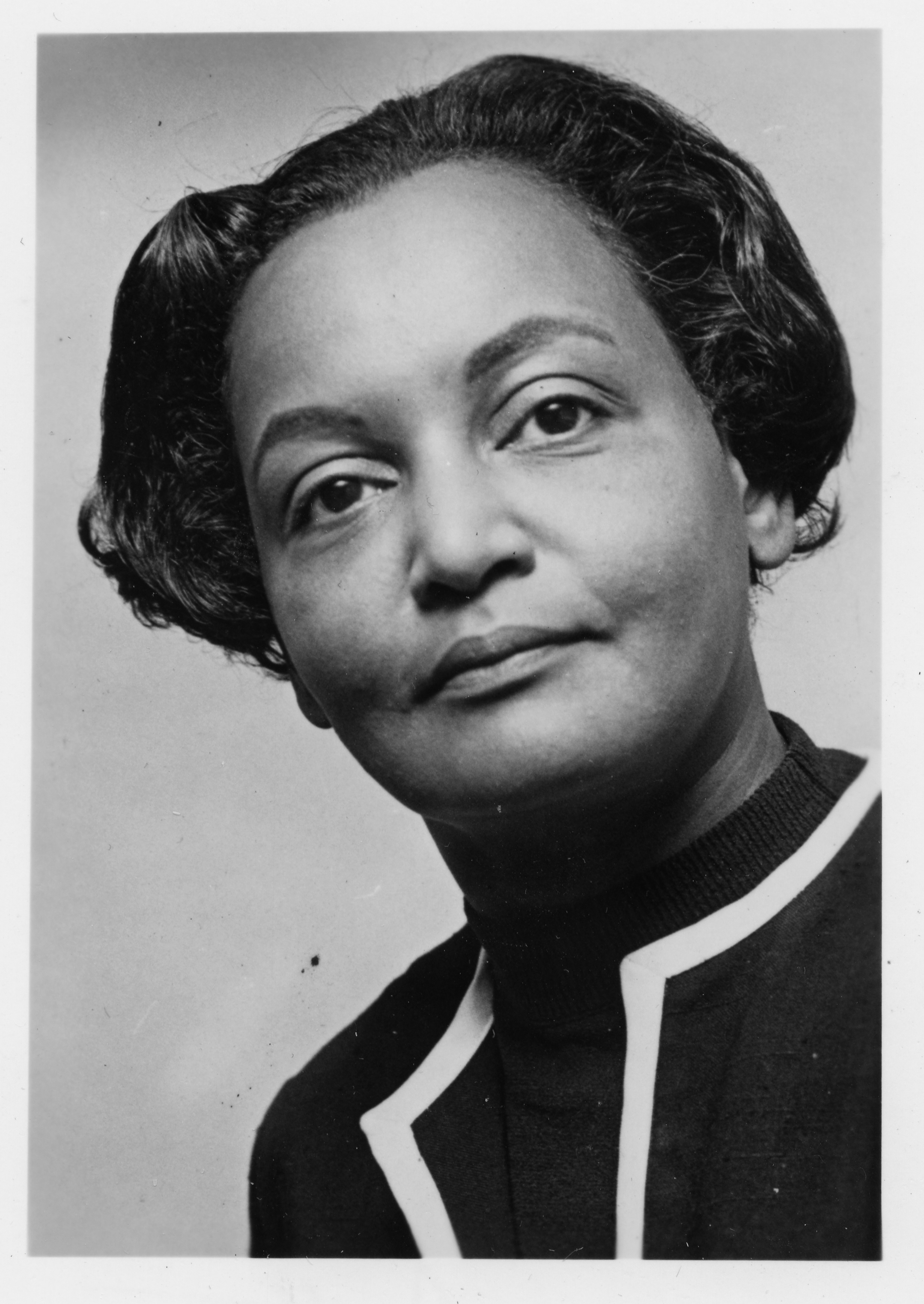Confronting the Revolution of Our Times: The Mary Jane Patterson Story

Mary Jane Patterson was born on February 12th, 1924, in Marietta, Ohio. At that time in southern Ohio, very few African American families lived there. Mary Jane spoke of this time fondly and noted that she was not very aware of race relations growing up because she lived in an integrated town. After her high school graduation, she moved to Columbus, Ohio, where her worldview changed drastically. It was her first encounter with more extreme forms of segregation, and she became more acquainted with the blooming civil rights movement taking hold in the 1940s.
She enrolled in Ohio State University (OSU) where she received undergraduate degrees in philosophy and accounting. She worked several jobs throughout this time—first as a riveter during WWII, then as an accountant for an insurance company, and later for the IRS—all while remaining a devout Presbyterian. She later began working at the YWCA as an Assistant Teenage Program Director. While working at the YMCA, Mary Jane received her master’s in social work from OSU.
Throughout the 1950s and 1960s, Mary Jane’s involvement in the civil rights movement only grew. She was an active member of the NAACP and was a strong opponent of apartheid in South Africa. It was because of her community and Civil Rights work that she was asked to become an elder at Bethany Presbyterian Church in Columbus in 1960. She was only in her 30s.
The Presbyterian Church attempted to recruit her for missionary work in Africa in 1962 and 1963, but Mary Jane thought that there was more work to be done in America, so she declined. Instead, she helped to organize a local group’s participation in the March on Washington. The following year, she participated in “Freedom Summer”, where she helped African Americans in Mississippi register to vote. Finally, in 1965, after tirelessly working in the United States, the Church convinced her to go to Kenya.

While in Kenya, she worked to educate young women and girls living in a Presbyterian-run hostel. She would raise funds to send them to high school or trade school, all while educating them on urban living and domestic skills. Mary Jane continued to work in Kenya until 1968, returning after the assassinations of Martin Luther King Jr. and Robert Kennedy Jr. Her return to the United States was at the behest of the Presbyterian Church to work with the National Council of Churches’ “Crisis in the Nation ” Project. This project was the Department of Youth ministry’s response to the racial unrest of the mid-1960s and was carried out primarily through community action projects. While working on this project, she saw again the work that needed to be done in America and made the decision to stay, ending her missionary work in Kenya.
After working with “Crisis in the Nation”, Mary Jane resigned from working directly with the Presbyterian Church in favor of working directly with a community in Los Angeles. In an interview she gave for the book No Easy Victories, she cites her reason for staying in Los Angeles was that Ronald Reagan was governor and “he had wrecked education, and he had wrecked mental health and was on the way to wrecking the environment.” While in Los Angeles, Mary Jane worked for the Protestant Community Services (now the People’s Coordinated Services).
In 1971, after several years in Los Angeles, Mary Jane was recruited once again by the Church. This time though, she immediately said "yes" to working as the Associate Director of the Washington, D.C. office. Her appointment as the Associate Director did not last long because, in 1976, she became the Director. In both positions, she was the first African American to serve in the role. As Director, Mary Jane worked passionately on issues regarding civil rights (both domestic and international), the environment, and food security.

Mary Jane also served as one of the founders for the Religious Coalition for Reproductive Choice (RCRC) in 1973. Even after her retirement from the Washington office in 1989 after 13 years of service, she continued to provide for her community to the best of her ability. In 1994, Mary Jane signed on to the republishing of the RCRC brochure “We Remember” that expressed the opposition African American women had to the policies that dictated their reproductive rights. She also served on numerous General Assembly committees, including the Advisory Committee on Social Witness Policy.
In her lifetime, Mary Jane was recognized several times for the tremendous work that she had done. In 1988, she was awarded the Peaceseeker Award by the Presbyterian Peace Fellowship. In 1998, she also earned a PC(USA) Woman of Faith award for her lifetime of work. Mary Jane passed away on April 8th, 2009, leaving behind a legacy of Civil Rights work and commitment bettering the world.





















